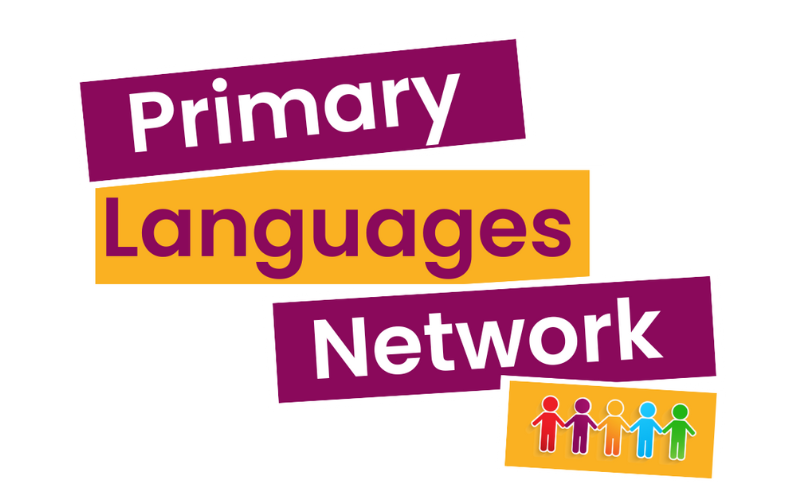This year we are launching our FAQs blog posts.
Here’s the first post about being “Ofsted ready in primary languages”.
It’s a frequently asked and highly relevant question. Have you seen this recent Ofsted announcement?
Extract from recent Ofsted announcement
Firstly don’t panic
If you work with a well constructed scheme of work and have in place the resources and tools to plot and plan the learning journey across KS2 in primary languages then you are almost ready.
Here’s a guide and checklist to help you:
Whether you are already a Primary Languages Network member or not these podcasts could help.
Take a listen to Catherine, our Network Manager’s podcasts from June-July 2019, helping coordinators prepare for the new academic year. Get Ready for September (5 short podcasts with practical step by step advice)
Next, if you are a Primary Languages Network member then listen in to this short podcast with Janet, explaining the intention of our three primary languages schemes of work options for KS2 French,German and Spanish,(Click2Teach, BeCreative and Teach by Story).
And make sure you are aware of the support that the PLN team can provide for you via Coordinator CPD and 1:1 webinars. More info in this podcast: Support and help.
So let’s prepare for questions you may be asked as the primary languages coordinator, during a “deep dive” in primary language teaching and learning in your school.
We have provided you, as the coordinator or the teacher i/c of languages with the all the tools and guidance you require to prepare for a “deep dive” during an Ofsted visit.
Have a read through this blog post and take a look at our solutions to these questions you may be asked:
What does your curriculum design look like (intent)?
What’s your method of delivery (implementation)?
How do you ensure progress is part of your implementation focus?
How do you diagnostically assess the progress children make (impact).
Watch out for the Ofsted Ready chart about to be launched in MFL Coordinators Tools and on the dashboard for Premium Members and Teacher Members Plus.
The NEW “Planning Chart”, specifically created for each language, will aid speedy access to most of the resources and tools we mention below.
Extract from the Planning chart from our Primary Languages SoW
What does your curriculum design look like (intent)?
Our Long Term Plans guide you step by step through the intentions of the curriculum: key focus, age and stage appropriate,content, phonics,grammar and the language learning skill level your children will be working at in each year or stage of learning .
Extract from the Long term plan from our Primary Languages SoW
The Medium Term Plans for each unit contain core vocabulary lists, key performanace indicators, learning objectives ,an overview of the sequence of lessons, links to the Puzzle It Out diagnostic assessements plus examples of real children’s work as a comparative guide for your own classes’ outcomes.
Extract from a medium term plan from our Primary Languages SoW
What’s your method of delivery (implementation)?
At Primary Languages Network, we believe that language learning must be age and stage appropriate, must be primary centric and based on good primary practice. You can share the long term view of the themes explored and how children revisit core themes and build on core language and content over four years with our 4 year SOW overviews.
Extract from our Primary Languages SoW table of contents
How and when we teach themes and topics has been determined by age and stage of learners, progress in language knowledge, links to school calendar and times of year or whole school curriculum focuses.
You may want to refresh your own understanding of the learning activities and opportunities offered to your KS2 children, using the PLN VLE and schemes of work.
Activities need to reach all learners and address both the needs of the children who are learning the language and the needs and levels of linguistic knowledge of the teachers who are facilitating the learning.
Learning should include games, songs, four core skills of language learning, opportunities to build language learning skills, culture, stories etcetera.
Primary Languages Network members can share the options of schemes of work in French,German and Spanish on the VLE with this quick overview to explain/support the school’s choice of scheme:
The Primary Languages Network “What is in this unit?” overview slideshows share an overview of the content in each unit and the types of activities that children will participate in during the course of a unit of learning too.
Lesson plans (BeCreative) or click through sequences of learning (Click2Teach) show the sequence of actual activities you use to deliver primary languages and the outcomes expected of the children:
Extract from an example lesson plan
How do you ensure progress is part of your implementation focus?
Well, if you are working with us, then progress is built into all three options of the KS2 schemes of work in phonics, grammar,acquisition of vocabulary,development of language learning skills and cultural (age appropriate ) knowledge. The SOW overview, the LTPs, the MTPs, the individual lesson learning objectives help your school in KS2 build and track this progress.It’s embedded in the lesson planning! These details are also in the LTPs and MTPs too.
We track progress with our class tracking sheets , which anecdotally, have acted as a great prompt tool over the years for teachers (class teachers to coordinators and PPA teachers), when interviewed or asked about the progress a specific year group or class is making in primary languages.
Extract from the tracking sheets in our Primary Languages SoW
If you use our AfL clouds to formatively assess individual pupil progress, then have some ready to show in books or folders and that the children are really using in their books to evaluate their own progress and developing understanding. The children can use these to talk about their learning and progress with a class visitor too.
How do you diagnostically assess the progress children make (impact).
How you use the tools we offer in your own schools depends on school assessment policy.
All the PLN KS2 schemes and the diagnostic tools we offer are based on the CEFR (Common European Framework of Reference level A1 - cusp of A2 over the four years in KS2) and for our English schools are aligned with the current DFE KS2 MFL POS and the language learning skills’ 12 bullet points.We refer to these bullet points as “Attainment Targets” to be reached over four years of KS2 language learning.We advise that you access and are aware of the PLN Assessment Benchmarks for Years 3, 4, 5 and 6.
“Puzzle It Out” assessments have been designed to track progress of individual pupils in their knowledge of language, skills and sentence structure across the four core skills of listening, speaking, reading and writing, Have ready to share examples of the Puzzle It Outs from a range of abilities and staged (CEFR A1 - cusp A2) that your KS2 classes have completed.
Extract from our Puzzle it out assessment in our Primary Languages SoW
You may have a school based assessment record spreadsheet or you may be using the PLN spreadsheet showing which children are meeting, working toward or exceeding the expected benchmark level.
Extract from our Assessment collation and reporting
We know anecdotally that two of our coordinators found the spreadsheet and assessment benchmarks very useful during Ofsted subject deep dives.The colour coded graph,the Puzzle It Outs and the benchmarks enabled them to speak clearly about how they were diagnostically using assessments to track progress and determine intervention and extension strategies for pupils.
Examples of real work in books is key too.Gather evidence of learning and keep examples in year group VLE User Files or in children’s books.
Extract from our examples of work in our Primary Languages SoW
NEW this year are our “Concept Cards” for reasoning and evidencing.Simply run off and stick in books and ask the children to write in English their answer and therefore reasoning behind a question posed linked to the focus of unit and the language the children have been practising.Our PLN Language Teachers are trialling these at the moment and they will be part of both Click2Teach and BeCreative shortly and can already be found in the “Planning” section for the schemes of work.
Concept cards from our Primary Languages SoW
Last but definitely not least!
Brand NEW this year, created by class teachers to help you compile evidence of diagnostic assessments, understanding of prior learning in your class and next steps, are our Year 3 /4/5 and 6 French, German and Spanish Planning booklets.
Simply click through to these from the Planning Chart, clipboard in to class folders and then it’s over to the class teacher or visiting teacher to keep a running record and diagnostic reviews throughout the academic year. (It’s a word document so you can add or delete pages as you require).
Extract from the Planning booklet in our Primary Languages SoW
Be prepared!
Remember we are ready and willing to help you feel more confident and ready for Ofsted.Contact us here “contact form”
Plus you can contact Catherine, our Network Manager directly on catherine@primarylanguages.network) with your questions too.


![2019-09-10 09_00_26-PowerPoint Slide Show - [MFL priority problem.pptx].png](https://images.squarespace-cdn.com/content/v1/556c715ce4b09e217791b6fb/1568106659068-5SHR4I6EIRVOPG5UX6A5/2019-09-10+09_00_26-PowerPoint+Slide+Show+-+%5BMFL+priority+problem.pptx%5D.png)





















